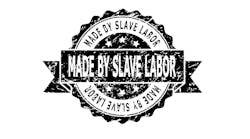The Equal Employment Opportunity Commission (EEOC) has extended the deadline for employers to file Form EEO-1 from March 31 to June 1, 2018.
This extension may be related to a backlog for processing requests for spinoffs and mergers/acquisitions, say attorneys for the law firm of Ogletree Deakins. They point out that these requests must be manually processed by the EEOC before affected companies can finalize their 2017 EEO-1 reports, and the processing of many of these requests has been delayed.
The new deadline follows more than a year of delays while the Trump administration EEOC dialed back a vast extension of the reporting requirements that was developed by the Obama-era commission in 2016.
Mandated for more than 50 years, the EEO-1 report is not intended for targeting individual employers. Instead, the data gathered is supposed to help EEOC form new policies and regulations. Required to file are employers with more than 100 employees, and all federal contractors or subcontractors with more than 50 employees.
In 2017, the Trump White House office responsible for reviewing new federal rules agreed they were too burdensome and ordered the expanded form be withdrawn. Employers now are only required to file the same form they had used prior to 2016 for reporting their 2017 data.
Employers are expected to file data they choose for any single payroll period in October, November or December 2017 no later than June 1. EEOC has posted questions and answers on its website for employers, and direct inquiries can be made by sending an e-mail to [email protected].




